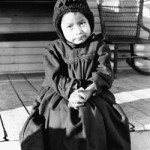Vision: To support the inherent rights of Indigenous peoples to achieve full and complete health and wellness by collaborating in decolonizing research and knowledge building and sharing.
This is an amazing site containing detailed information on how the Indigenous Wellness Research Institute (IWRI) is helping Indigenous people realize self-actualization. By understanding how traumatic events of the past (including the impacts of colonization and residential schools, etc) have damaged the spirits of many Indigenous people and led to a justifiable mistrust, it quickly becomes apparent why the quest for decolonization is so imperative.
Return to Wellness – this relatively short video clip is a must view as it effectively explains the goals of the IWRI and how they are working to empower Indigenous people.
Through making the IWRI’s goal of attainment of higher education the norm for Indigenous people, the hope is this will lead to realization of what is perhaps the highest level of wellness – that which comes from being afforded the opportunity to share one’s wisdom and insights in supporting others to achieve their full potential.
